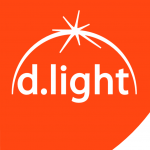Technology
16.8 million Nigerians are Cyberattacked through Ad-supported Apps

A multinational cybersecurity business named Kaspersky conducted a study on the threat environment in a few African nations, recording over 28 million malware assaults and 102 million potentially undesirable apps in the smartphones of numerous people in Kenya, South Africa, and Nigeria.
According to a statement made by Kaspersky, the proliferation of PUAs and hacks occurred over a seven-month period.
According to the cybersecurity and antivirus company, a PUA is any software that a user did not choose to install on their device. The ad-supported software is one example of such a program (or adware).
These are pieces of software that show unsolicited adverts on computers. When they infect mobile devices, they are referred to as malware. Pornware is a type of PUA that shows pornographic content on devices.
Some PUAs are lawfully designed applications, however, they may be exploited to pose unique risks to users, such as the distribution of harmful software such as spyware, viruses, or other malware. Cybercriminals may purposefully conceal malware into PUAs, advertising websites, or supporting software.
According to the cybersecurity firm, not only are PUAs growing more widespread, but they are also more effective than traditional malicious software. Researchers have found that attacks on PUAs users occur four times more frequently than attacks on traditional malicious software.
For example, if over 16.8 million PUAs were detected in Nigeria over a seven-month period, 3.8 million malware assaults were also revealed to have occurred more than four times in the nation over that same period of time.
“The reason ‘grey zone’ software is becoming more popular is that it is more difficult to detect at first and that if the program is identified, its designers will not be deemed hackers “explained Kaspersky security expert Denis Parinov. “The issue with them is that consumers are not always aware that they agreed to the installation of such apps on their device, and in some situations, such apps are abused or used as a cover for malware downloads.”
In South Africa, around 10 million malicious software assaults were detected, and 43 million Puas were discovered throughout the review period. According to Kaspersky, internet users in Kenya face greater threats, with over 14 million malicious software discovered, and 43 million PUAs identified.
These kinds of cyberattacks were also popular in Kenya but were largely carried out by unlicensed and dishonest financial institutions.
Because of this, many people who wanted to get involved in trading started to search Capex Broker review, in order to find out whether or not a certain broker was among the scam financial companies and were licensed or not, as everyone who advertised something online was thought to be a fake.
However, it is also perilous for Nigeria since the potential harm these assaults might inflict on the local digital realm is tremendous.
Potentially unwanted apps (PUAs) are apps that are not dangerous in and of themselves. However, they typically have a detrimental impact on user experience. Adware, for example, floods user devices with advertisements; aggressive monetization software spreads unwanted paid offers; and downloaders may install other apps on the device, including harmful ones.
The researchers discovered that PUAs infect users nearly four times more frequently than regular malware when computing interim findings of threat landscape activity in African countries. They also eventually reach more people: for example, in South Africa, the virus would target 415,000 people in seven months, whereas PUA would target 736,000.
This specific danger, according to Geoffrey Cleaves, Head of Secure-D at Upstream, preys on the most susceptible.
“The fact that the virus is pre-installed on smartphones purchased in their millions by normally low-income households tells you all you need to know about what the business is now up against,” according to him.
According to Kaspersky’s research, three out of every ten devices are in danger of having undeletable applications on their phones, making them an ideal target for dangerous malware.
According to the Interpol Cybercrime COVID-19 Impact, phishing is the most serious concern worldwide, followed by malware and ransomware, harmful sites, and fake news. According to the research, the COVID-19-related attacks were mostly social engineering attempts.
Malware and adware may infiltrate devices in two ways. Freeware can install malicious software or advertising applications on a device.
Shareware is software that is shared for the purpose of the trial, whereas freeware is software that may be used for free. Users can obtain adware on their devices by visiting infected websites, which results in the download and installation of software that is never used.
PUA may be used to steal money from unknowing users in addition to spamming your device. According to the paper, PUA programs are not often deemed harmful in and of themselves. However, they typically have a detrimental impact on user experience.
Adware, for example, floods the user’s device with advertisements; aggressive monetization software spreads unrequested paid offers; and downloaders may install other, often harmful, apps on the device.
Technology
Leticia Otomewo Becomes Secure Electronic Technology’s Acting Secretary

By Aduragbemi Omiyale
One of the players in the Nigerian gaming industry, Secure Electronic Technology (SET) Plc, has appointed Ms Leticia Otomewo as its acting secretary.
This followed the expiration of the company’s service contract with the former occupier of the seat, Ms Irene Attoe, on January 31, 2026.
A statement to the Nigerian Exchange (NGX) Limited on Thursday said Ms Otomewo would remain the organisation’s scribe in an acting capacity, pending the ratification and appointment of a substantive company secretary at the next board meeting.
She was described in the notice signed by the Managing Director of the firm, Mr Oyeyemi Olusoji, as “a results-driven executive with 22 years of experience in driving business growth, leading high-performing teams, and delivering innovative solutions.”
The acting secretary is also said to be “a collaborative leader with a passion for mentoring and developing talent.”
“The company assures the investing public that all Company Secretariat responsibilities and regulatory obligations will continue to be discharged in full compliance with the Companies and Allied Matters Act, applicable regulations, and the Nigerian Exchange Limited Listing Rules,” the disclosure assured.
Meanwhile, the board thanked Ms Attoe “for professionalism and contributions to the Company during the period of her engagement and wishes her well in her future endeavours.”
Technology
Russia Blocks WhatsApp Messaging Service

By Adedapo Adesanya
The Russian government on Thursday confirmed it has blocked the WhatsApp messaging service, as it moves to further control information flow in the country.
It urged Russians to use a new state-backed platform called Max instead of the Meta-owned service.
WhatsApp issued a statement earlier saying Russia had attempted to “fully block” its messaging service in the country to force people toward Max, which it described as a “surveillance app.”
“Today the Russian government attempted to fully block WhatsApp in an effort to drive people to a state-owned surveillance app,” WhatsApp posted on social media platform X.
“Trying to isolate over 100 million users from private and secure communication is a backwards step and can only lead to less safety for people in Russia,” it said, adding: “We continue to do everything we can to keep users connected.”
Russia’s latest move against social media platforms and messaging services like WhatsApp, Signal and Telegram comes amid a wider attempt to drive users toward domestic and more easily controlled and monitored services, such as Max.
Russia’s telecoms watchdog, Roskomnadzor, has accused messaging apps Telegram and WhatsApp of failing to comply with Russian legislation requiring companies to store Russian users’ data inside the country, and of failing to introduce measures to stop their platforms from being used for allegedly criminal or terrorist purposes.
It has used this as a basis for slowing down or blocking their operations, with restrictions coming into force since last year.
For Telegram, it may be next, but so far the Russian government has been admittedly slowing down its operations “due to the fact that the company isn’t complying with the requirements of Russian legislation.”
The chat service, founded by Russian developers but headquartered in Dubai, has been a principal target for Roskomnadzor’s scrutiny and increasing restrictions, with users reporting sluggish performance on the app since January.
Technology
Nigerian AI Startup Decide Ranks Fourth Globally for Spreadsheet Accuracy

By Adedapo Adesanya
Nigerian startup, Decide, has emerged as the fourth most accurate Artificial Intelligence (AI) agent for spreadsheet tasks globally, according to results from SpreadsheetBench, a widely referenced benchmark for evaluating AI performance on real-world spreadsheet problems.
According to the founder, Mr Abiodun Adetona, the ranking places Decide alongside well-funded global AI startups, including Microsoft, OpenAI, and Anthropic.
Mr Adetona, an ex-Flutterwave developer, also revealed that Decide now has over 3,000 users, including some who are paying customers, a signal to the ability of the startup to scale in the near future.
SpreadsheetBench is a comprehensive evaluation framework designed to push Large Language Models (LLMs) to their limits in understanding and manipulating spreadsheet data. While many benchmarks focus on simple table QA, SpreadsheetBench treats a spreadsheet as a complex ecosystem involving spatial layouts, formulas, and multi-step reasoning. So far, only three agents rank higher than Decide, namely Nobie Agent, Shortcut.ai, and Qingqiu Agent.
Mr Adetona said SpreadsheetBench measures how well AI agents can handle practical spreadsheet tasks such as writing formulas, cleaning messy data, working across multiple sheets, and reasoning through complex Excel workflows. Decide recorded an 82.5% accuracy score, solving 330 out of 400 verified tasks.
“The result reflects sustained investment in applied research, product iteration, and learning from real-world spreadsheet workloads across a wide range of use cases,” Mr Adetona told Business Post.
For Mr Adetona, who built Decide out of frustration with how much time professionals spend manually cleaning data, debugging formulas, and moving between sheets, “This milestone highlights how focused engineering and domain-specific AI development can deliver frontier-level performance outside of large research organisations. By concentrating on practical business data problems and building systems grounded in real user environments, we believe smaller teams can contribute meaningfully to advancing applied AI.”
“For Decide, this is a foundation for continued progress in intelligent spreadsheet and analytics automation,” he added.
-

 Feature/OPED6 years ago
Feature/OPED6 years agoDavos was Different this year
-
Travel/Tourism10 years ago
Lagos Seals Western Lodge Hotel In Ikorodu
-

 Showbiz3 years ago
Showbiz3 years agoEstranged Lover Releases Videos of Empress Njamah Bathing
-

 Banking8 years ago
Banking8 years agoSort Codes of GTBank Branches in Nigeria
-

 Economy3 years ago
Economy3 years agoSubsidy Removal: CNG at N130 Per Litre Cheaper Than Petrol—IPMAN
-

 Banking3 years ago
Banking3 years agoSort Codes of UBA Branches in Nigeria
-

 Banking3 years ago
Banking3 years agoFirst Bank Announces Planned Downtime
-

 Sports3 years ago
Sports3 years agoHighest Paid Nigerian Footballer – How Much Do Nigerian Footballers Earn












